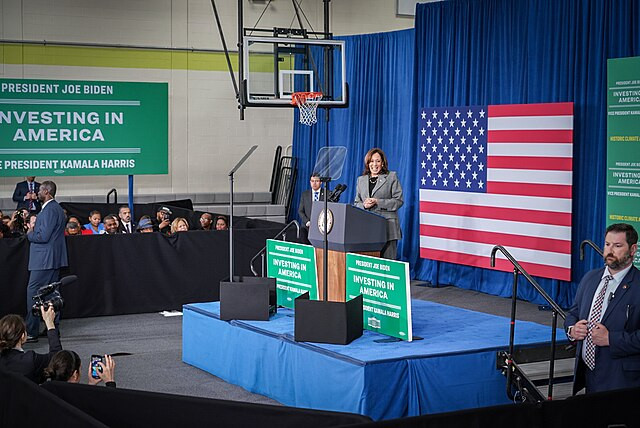The Biden administration is facing potential legal roadblocks following the Environmental Protection Agency's (EPA) announcement of new regulations targeting emissions from chemical plants across the United States. The rules, which aim to reduce toxic air pollution from more than 200 facilities, have been met with both praise from environmental activists and fierce opposition from the chemical industry.
Synthetics manufacturer Denka Performance Elastomer (DPE) has already announced its intention to sue the EPA over the regulations, arguing that they are politically motivated and unfairly punish the company, which operates the nation's sole neoprene facility in LaPlace, Louisiana. Neoprene, a synthetic rubber, is commonly used in military equipment, wetsuits, and medical technology.
"EPA's rulemaking is yet another attempt to drive a policy agenda that is unsupported by the law or the science," DPE said in a statement. The company has taken issue with the EPA's requirement that its facility comply with the restrictions and fenceline monitoring requirements within 90 days, a significant reduction from the initially proposed two-year compliance period.
DPE claims that the "draconian" compliance deadline would force the company to idle its operations at "tremendous expense and risk to its hundreds of dedicated employees." The company plans to pursue legal challenges to extend the compliance period, return the state's authority to grant extensions, and challenge the rule's substantive requirements.
The American Chemistry Council, which represents chemical manufacturers, has also expressed concerns about the regulations' impact on vital industries such as electric vehicle battery development, agricultural products, domestic semiconductor manufacturing, and health care access, which rely on ethylene oxide, one of the chemicals targeted by the new rules.
Despite the industry's opposition, environmental activists and community leaders have hailed the EPA's announcement as a victory in the "pursuit for environmental justice." EPA Administrator Michael Regan visited communities in Texas and Louisiana as part of his Journey for Justice tour, witnessing firsthand the disproportionate impact of toxic air pollution on minority communities.
"This is a game changer any way you look at it," Regan said at a press event on Tuesday. "This is a game changer for the health. It's a game changer for the prosperity. It's a game changer for children in these communities nationwide."
The new standards target ethylene oxide and chloroprene, two main pollutants produced by chemical plants located near predominantly Black communities in Texas and Louisiana. Even small amounts of exposure to these chemicals can damage human DNA and cause mutations that can lead to illnesses later in life, with children being especially susceptible.
Under the new rule, industries will be required to find the source of pollution for these chemicals, make repairs if annual air concentrations exceed standards, and add fence-line monitoring near communities while sharing the data publicly.
Community activists like Robert Taylor and Sharon Lavigne, who have been fighting for years to address the environmental injustices faced by their communities, applauded the EPA's decision. Lavigne, who founded the Louisiana-based environmental group Rise St. James, emphasized the importance of immediate notification and community input when action levels are exceeded.
While the chemical industry argues that the new regulations will lead to job losses and economic hardship, environmental groups and community leaders see the move as a historic step towards addressing past environmental injustices and protecting the health of overburdened communities.






